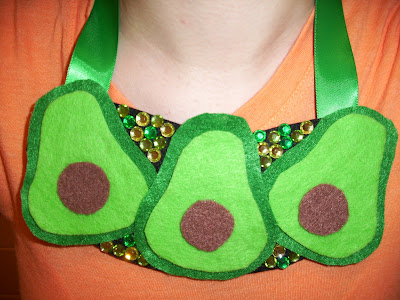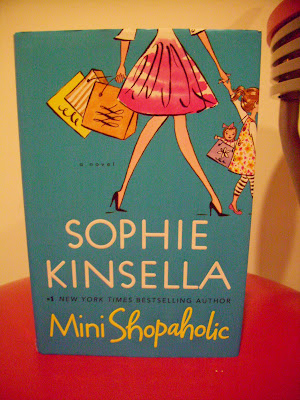I always enjoy a good Irish yarn, in which colorful characters, intricate story lines, and whimsy are always sure to star. True to form, Marian Keyes delivers all three in
This Charming Man. But as in all her novels, she mixes the light, sometimes side-splittingly funny froth with much darker stuff.
This Charming Man is the story of three women and how their lives are destroyed, in one way or another, by terminally handsome and smarmier-than-usual politician Paddy de Courcy. Lola is a purple (er, molichino, as she is ever quick to point out)-haired, self-employed stylist, Grace is a tough-as-nails journalist, and Marnie, Grace's twin, is a fragile, emotional secretary. (It should be mentioned that the lion's share of the funny stuff comes from Lola, who ends up hosting a safe house for cross dressers and riding off into the sunset with one of them.) The book opens with the announcement of Paddy's engagement to a socialite (who is later revealed to be Grace and Marnie's childhood best friend), an event that sparks the following reactions from each woman:
Grace: "Everyone remembers where they were the day they heard that Paddy de Courcy was getting married. I was one of the first to know, what with working in a newspaper when word came in from David Thornberry, political correspondent (and tallest man in Dublin) that de Courcy was calling it a day. I was surprised. I mean, we all were. But I was extra surprised, and that was even before I heard who the lucky woman was. But I couldn't act upset. Not that anybody would have noticed. I could fall down dead in the street and people would still ask me to drive them to the station. That's what life is like when you're the healthy one of a pair of twins. Anyway, Jacinta Kinsella (boss) needed a quick piece on the engagement so I had to put my personal feelings to one side and be a professional."
Alicia (bride-to-be): "It would have been nice if you had asked me first."
Lola: "I was on the net, checking eBid for an owl handbag (by Stella McCartney, not just any "owl" handbag) for a client to wear to a wildlife charity thing when I saw the headline. DE COURCY TO WED. Thought it was a hoax. The media are always making stuff up and faking cellulite on girls who don't have it and taking it off girls who do. When I discovered that it was true, I went into shock. Actually thought I was having a heart attack. Would have called an ambulance but couldn't remember 999. Kept thinking 666. Number of the beast."
Marnie: "Don't you be happy, you bastard. That's what I thought when I heard. Don't you dare be happy." (Keyes 1)
This is one of those stories where the author zeroes in on each character individually, fleshing out each one's little quirks and foibles through a kaleidoscope of descriptions and flashbacks before ever crossing their paths. As always, I liked this approach because it allowed me to get inside each woman's head and -- as is the case in all good stories -- because it provided a solid and believable foundation for the ambitious plot that unravels. However, the most important point about the structure of this story is the string of passages describing domestic violence. Keyes gives us unflinchingly graphic accounts sandwiched in between the women's narratives, never offering any names. I was halfway through the book before I realized that Keyes was writing about things Paddy had done to each of the women. For a while I thought that Marnie had an abusive husband. To be fair, I think that Keyes framed Marnie's story so that it seems that way, highlighting her nervousness and the problems in her marriage, then following them up with the snippets of gruesome attacks. It's only once we realize that Marnie is an alcoholic that it becomes clear that her husband isn't the problem and that her abuser is someone from her past.
Most of us latch onto one character more than the others when reading fiction, recognizing some nugget of ourselves in his or her naked psyche. In this book, I identified with Marnie. I didn't want to. In many ways, she appears weaker than Lola and Grace, and I was ashamed of my own comparison, especially when she turned out to be an alcoholic. But Marnie is painfully sensitive and introspective and expects too much from everyone, and that was something I could understand. Even so, I would have preferred to feel a kinship with strong, independent, go-to-hell Grace.
Marnie's heart was broken by Paddy as a teenager, Lola was still seeing him at the time of his engagement, and Grace -- well, Grace never fully succumbs to Paddy's charms, but her abbreviated encounter with him is enough to land her a bloody eye and walking papers from her boyfriend. Yet it isn't until Grace discovers Paddy's plan to get a women's rights activist ousted from office that she rounds up Paddy's victims to blackmail him.
I won't go into details, but let's just say Paddy gets what he deserves.
It's true that the all the loose threads are wound up a little too easily as the book comes to a close. But I didn't mind, as long as there was a happy ending. This is the kind of book that needs a happy ending. Not a strike-up-the-band-and-release-the-balloons kind of ending, but one that lets you walk away feeling that it will all be okay after having been opened to so many horrific things. Keyes does an excellent job of explaining how women become involved with -- and stay involved with -- men like Paddy. To be honest, I don't know if I would have read this book if I'd known what it was really about. (I loyally read all of Keyes's books, barely glancing at the back covers to suss out particulars before marching them to the checkout.) But I enjoyed it. Although depressing at times, it was very well-written (no surprise there) and offered a fresh angle on something I didn't know a whole lot about.




















































